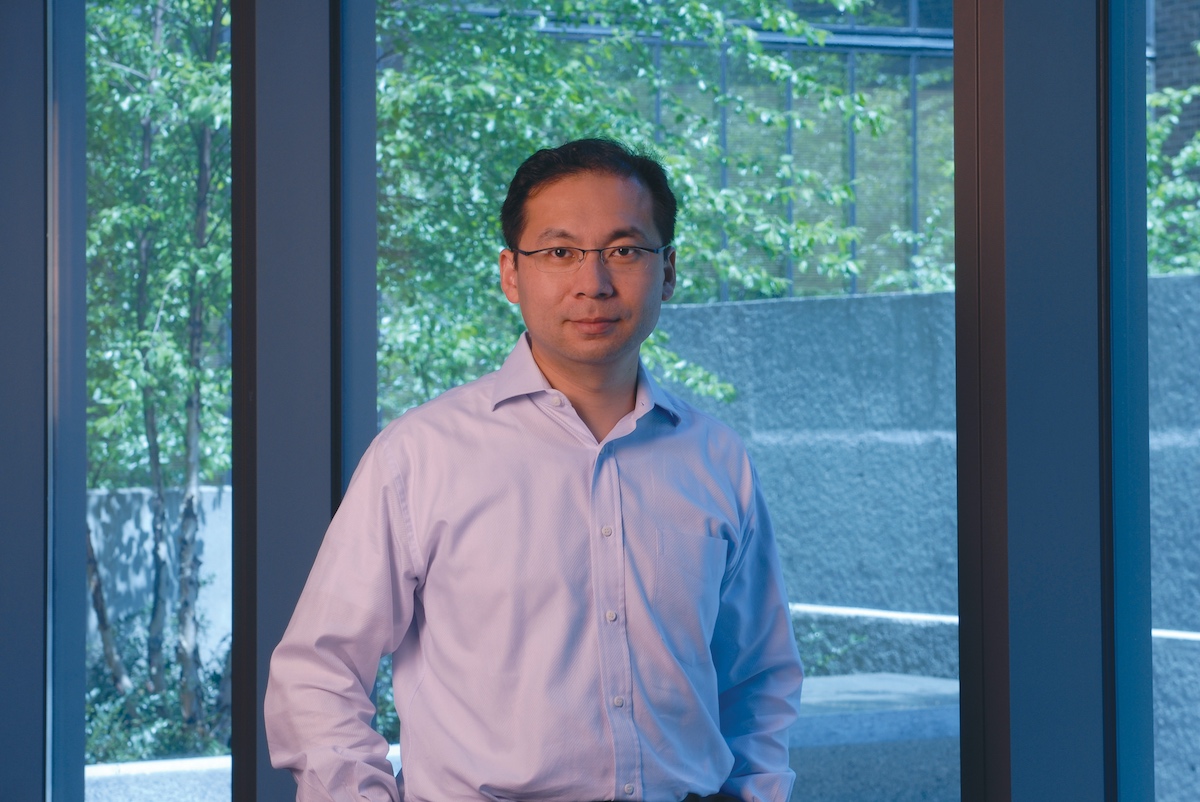University of Pennsylvania was picked as one of 16 universities to receive part of $75 million in funding for a five-year artificial intelligence research program from the Toyota Research Institute (TRI), one of the biggest collaborative research programs by an automotive company worldwide.
TRI’s chief science officer, Eric Krotkov, earned his Ph.D. in computer and information science at Penn as well as a BA from Haverford College. He told Technical.ly TRI has a place in Toyota’s ecosystem that allows it do applied research, and, in turn, work with academics to address fundamental questions.
“The universities are widely known for their excellence in posing good questions and developing the talent and minds to start to answer them,” he said. “Part of the reason we look to the universities is they are always bringing in fresh talent and fresh ideas. The perspective you get is much broader and wider than from an in-house staff. The fact we can add other universities makes for a very dynamic [experience].”
This university research effort covers three areas: automated robotics, machine-assisted cognition and automated driving — “a natural next step in Toyota’s growth as a mobility company,” per the Automated Toyota website.
When it comes to driving, automation will provide cars with a better ability to perceive, plan and predict what will happen next on the road, Krotkov said.
“That allows cars to drive more safely, perceive a threat and mitigate it,” he said.

Dr. Eric Krotkov. (Photo courtesy of the Toyota Research Institute)
The efforts in developing robotics will focus on the same themes of sensing and prediction. It goes beyond cars: Automation in this area could possibly allow robots to perform household tasks, like cleaning and carrying food items in and out of the kitchen, or bringing groceries home and putting them away. Robots could also allow older people dealing with issues like loneliness or a lack of dexterity to live in their homes longer instead of going to care facilities.
From an ethical vantage point, Krotkov also hopes for automated decision processes that will be less vulnerable to biases. With this future in mind, he said TRI went through a lot of deliberation in determining which projects to fund, and believes each TRI researcher working in-house is passionate about the projects they brought onboard.
Two Penn professors’ research will be funded through TRI, both of whom work through Penn’s GRASP Laboratory. One is Michael Posa, Ph.D., an assistant professor of mechanical engineering and applied mechanics, whose research is titled “Optimization of simple models for locomotion and manipulation in Drake.”
And Jianbo Shi, Ph.D., a professor in Penn’s computer and information science department, will be working on a TRI-funded project with professor Hyun Soo Park of the University of Minnesota Twin Cities. The team will use a recreation of a “face” with a 3D morphable mesh model; a “hand” with a model featuring articulated and non-rigid deformations; and a “body” consisting of a skinned, multi-person linear model to express a volumetric body pose.
With this artificial body model, they will develop image generation algorithms to examine the geometry of the human body relative to car elements like a seat, window or airbags. Different scenarios will allow the team to capture photorealistic renderings from random viewpoints.

Dr. Jianbo Shi. (Courtesy photo)
The dollar amount of funding award was not disclosed.
Krotkov is excited about the project’s potential.
“[Shi] has a model of multiple contacts, like having multiple feet on the ground or a hand,” he said, referring to the numerous touch points the recreation uses to make contact with the surfaces it’s standing or walking upon. “Mathematically, this a very difficult problem, but he has a good way of approaching it.”
Michael Butler is a 2020-2022 corps member for Report for America, an initiative of The Groundtruth Project that pairs young journalists with local newsrooms. This position is supported by the Lenfest Institute for Journalism.Join the conversation!
Find news, events, jobs and people who share your interests on Technical.ly's open community Slack

Philly daily roundup: Jason Bannon leaves Ben Franklin; $26M for narcolepsy treatment; Philly Tech Calendar turns one

Philly daily roundup: Closed hospital into tech hub; Pew State of the City; PHL Open for Business

A biotech hub is rising at Philadelphia’s shuttered Hahnemann Hospital campus


